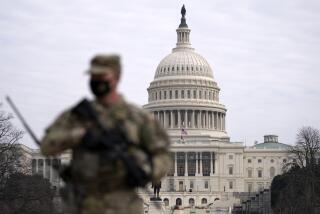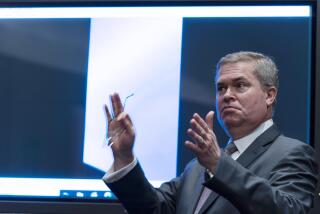Congress OKs Legislation on Human Space Tourism
- Share via
WASHINGTON — Outer space could become the final frontier of tourism under legislation passed Wednesday by the Senate to regulate commercial human spaceflight.
The bill, approved by voice vote in the final minutes of the 108th Congress, would authorize the Federal Aviation Administration to issue permits allowing private spacecraft operators to blast paying passengers into space.
The agency also would regulate the young industry, which was invigorated by the successful flights of a privately financed manned rocket over California’s Mojave Desert in October.
Although laws exist to regulate private-sector space endeavors such as satellite launches, there is no legal jurisdiction for regulating commercial human spaceflight. Even without one, entrepreneurs have announced plans to offer private space flights within several years, and wealthy thrill-seekers are plunking down deposits.
The Commercial Space Launch Amendments Act of 2004, by Rep. Dana Rohrabacher (R-Huntington Beach) passed the House last month and will now go to the president for his expected signature.
“This is a great victory for the future of America’s space efforts,” Rohrabacher said. “The people who will invest the type of big dollars necessary to make this a major new step in mankind’s ascent into space have been waiting for the government to lay down the regulatory regime and set the rules of the game, and this is the first major step towards doing that.”
Senate passage came after the bill stalled several times because of disagreements over how many safety protections to offer potential space tourists and crew.
The final version allows the FAA to begin issuing regulations to protect the safety of passengers and crew eight years after the bill becomes law. Before then, the agency may restrict design features or operating practices only if they’ve resulted in a serious or fatal injury to passengers or crew, or caused an unsafe unplanned event.
Rohrabacher and industry lobbyists contended that space tourists must fly at their own risk, and that more stringent safety rules would stifle innovation. Some Democrats had pushed for tougher safety rules.
The bill requires passengers to be informed of the risks, and the FAA may issue regulations to protect the nonflying public’s health and property and the country’s national security and foreign policy interests.
More to Read
Sign up for Essential California
The most important California stories and recommendations in your inbox every morning.
You may occasionally receive promotional content from the Los Angeles Times.













